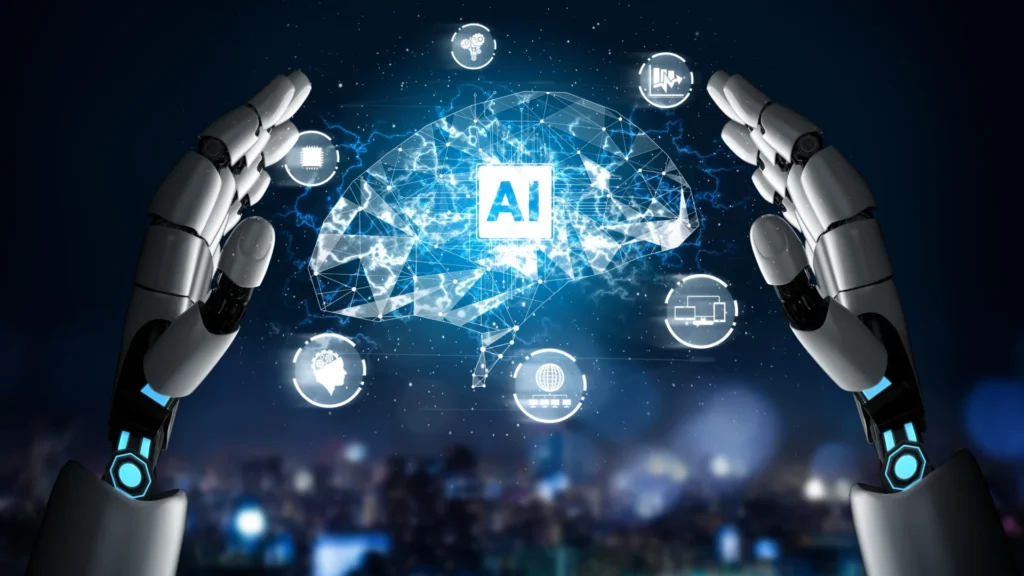AI and Technology Developments

The rapid advancement of artificial intelligence (AI) and technology is transforming the way we live, work, and interact with the world. Over the past decade, innovations in AI have revolutionized various sectors, including healthcare, finance, transportation, and entertainment, fundamentally changing the landscape of modern society. As we delve into the implications of these developments, it becomes evident that AI is not just a tool for efficiency but a catalyst for innovation and societal transformation.
One of the most significant impacts of AI can be observed in the healthcare sector. Machine learning algorithms and predictive analytics are enhancing diagnostic accuracy and patient care. For instance, AI systems can analyze medical images with remarkable precision, identifying conditions such as tumors or fractures that may be missed by the human eye. Additionally, AI-driven tools can assist healthcare professionals in personalizing treatment plans based on a patient’s unique genetic makeup, thereby improving outcomes. The COVID-19 pandemic further accelerated the integration of AI in healthcare, with technologies being deployed for contact tracing, vaccine development, and real-time patient monitoring.
In the financial sector, AI is reshaping how we manage money and assess risk. Algorithms can analyze vast amounts of data in real-time, enabling financial institutions to detect fraudulent activities and provide personalized financial advice. Robo-advisors are now commonplace, offering investment strategies tailored to individual risk profiles and goals. Moreover, AI-driven analytics are revolutionizing trading, allowing for high-frequency trading strategies that were once the domain of only the most sophisticated traders. These advancements not only enhance efficiency but also democratize access to financial services.
Transportation is another area experiencing significant transformation due to AI and technology. The development of autonomous vehicles promises to revolutionize how we commute, potentially reducing traffic accidents and congestion. Companies like Tesla and Waymo are at the forefront of this innovation, utilizing AI to create vehicles that can navigate complex environments with minimal human intervention. Furthermore, AI-powered logistics systems optimize supply chain management, ensuring that goods are delivered efficiently and sustainably, reducing costs and environmental impact.
Entertainment has also undergone a seismic shift with the integration of AI. Streaming services like Netflix and Spotify use sophisticated algorithms to analyze user preferences and viewing habits, delivering personalized content recommendations. AI-generated content is gaining traction, with tools capable of producing music, art, and even scripts. This not only enhances creativity but also challenges traditional notions of authorship and creativity in the digital age.
However, the rise of AI and technology also raises critical ethical and societal questions. Concerns about data privacy, algorithmic bias, and the potential displacement of jobs are at the forefront of discussions around AI development. As machines take on tasks traditionally performed by humans, there is a pressing need to address the implications for employment and workforce development. Policymakers, technologists, and society must collaborate to establish frameworks that ensure the responsible and equitable use of AI, prioritizing transparency, accountability, and fairness.
In conclusion, AI and technology developments are profoundly reshaping our world, offering unprecedented opportunities while presenting significant challenges. As we navigate this rapidly evolving landscape, it is crucial to embrace innovation while remaining vigilant about the ethical implications and societal impacts. By fostering collaboration between stakeholders and prioritizing responsible practices, we can harness the potential of AI to create a brighter, more equitable future for all. The next decade will be pivotal in determining how we integrate these technologies into our lives, shaping a world where AI enhances human capabilities and drives positive change.
1. CRISPR and Gene Editing
One of the most revolutionary innovations in the field of genetics is the development of CRISPR (Clustered Regularly Interspaced Short Palindromic Repeats), a gene-editing technology that allows scientists to alter DNA sequences with unprecedented precision. CRISPR can target specific sections of DNA to modify or “edit” them, potentially curing genetic disorders at their source.
CRISPR is already being used to treat conditions like sickle cell anemia and certain types of cancer. Researchers are also exploring its potential to eradicate hereditary diseases, improve agriculture, and even combat viruses like HIV. However, ethical concerns around its use, particularly in human embryos, remain a hot topic of debate. As this technology continues to develop, the potential to eliminate genetic diseases could revolutionize medicine.
2. Personalized Medicine
The concept of “one-size-fits-all” in healthcare is being replaced by personalized medicine, an approach that tailors treatments to individual patients based on their genetic makeup, lifestyle, and environment. Advancements in genomics, proteomics, and big data analytics allow healthcare providers to predict how a patient will respond to a particular treatment, improving the chances of successful outcomes.
In oncology, for example, personalized medicine is already leading to better-targeted therapies for cancer patients, minimizing side effects and improving efficacy. Pharmacogenomics, the study of how genes affect a person’s response to drugs, is enabling doctors to prescribe medications that are more effective for individuals, reducing trial and error in treatment plans. As personalized medicine becomes more widely adopted, it will fundamentally change how diseases are treated and managed.
3. Artificial Intelligence in Healthcare
AI is increasingly becoming a powerful tool in healthcare, transforming the way medical professionals diagnose diseases, predict patient outcomes, and develop treatment plans. AI algorithms can analyze vast amounts of medical data, identifying patterns that humans might miss. For example, AI-powered tools can detect abnormalities in medical images, like X-rays and MRIs, aiding radiologists in diagnosing conditions such as cancer, fractures, or brain diseases.
AI is also being used to predict disease outbreaks, assist in drug discovery, and optimize hospital operations. One of the most exciting applications is in AI-driven virtual health assistants and chatbots, which can provide patients with 24/7 support, triage symptoms, and offer medical advice. In the future, AI will continue to play a critical role in making healthcare more efficient, accessible, and precise.
4. Telemedicine and Remote Care
The COVID-19 pandemic accelerated the adoption of telemedicine, fundamentally changing how healthcare is delivered. Telemedicine enables patients to consult with healthcare providers remotely via video calls, apps, or other digital platforms, reducing the need for in-person visits. This has proven particularly beneficial for managing chronic conditions, mental health, and post-operative care, as patients can receive care from the comfort of their homes.
Telemedicine also improves access to healthcare for those living in rural or underserved areas, where healthcare services are limited. Remote patient monitoring (RPM) is another innovation gaining traction. Wearable devices, such as smartwatches or specialized medical monitors, track patients’ vital signs in real-time and alert healthcare providers to any concerning changes. The growth of telemedicine and RPM is expected to continue, making healthcare more convenient and accessible to a broader population.
5. Bioprinting and Organ Regeneration
One of the most exciting and futuristic innovations in medical science is bioprinting, a form of 3D printing that uses living cells to create tissue structures. This technology holds immense promise for organ regeneration, as it could potentially solve the global shortage of organs for transplantation. Scientists have already successfully printed skin, bone, and even rudimentary heart tissues in the lab.
In the future, bioprinting could lead to the production of fully functional, transplantable organs such as kidneys, livers, or hearts. This would revolutionize organ transplantation and eliminate the need for organ donors or the risk of transplant rejection. Although we are still in the early stages of bioprinting, advances in this field could have profound implications for regenerative medicine.
6. Wearable Health Technology
Wearable devices, such as fitness trackers, smartwatches, and biosensors, are becoming more sophisticated and integrated into daily life. These devices monitor vital health metrics, including heart rate, sleep patterns, and physical activity, providing users with real-time insights into their health. Some devices can even detect early signs of conditions like atrial fibrillation (AFib) or respiratory distress, prompting users to seek medical attention before symptoms escalate.
Wearable health tech is also being used to monitor chronic conditions, such as diabetes or hypertension, allowing for better disease management. The data collected from these devices can be shared with healthcare providers, enabling more personalized care and improving patient outcomes. As wearable technology continues to advance, it will play a critical role in preventive healthcare and early intervention.
Conclusion
The convergence of innovations in genetics, AI, personalized medicine, and bioprinting is reshaping the future of healthcare and science. These advancements are not only improving the treatment of diseases but are also making healthcare more accessible and personalized. As these technologies continue to develop, they hold the potential to extend human life, reduce suffering, and fundamentally change the way we approach health and wellness.
